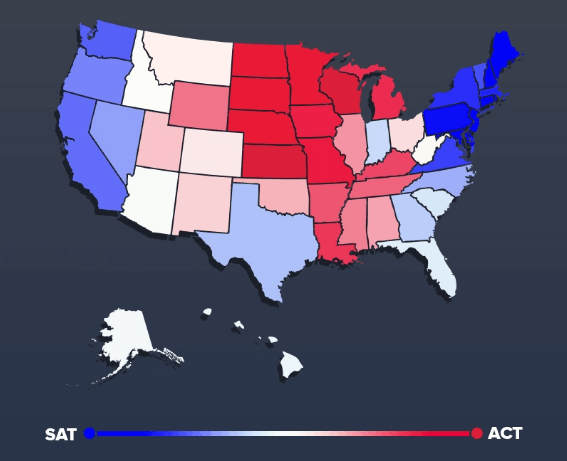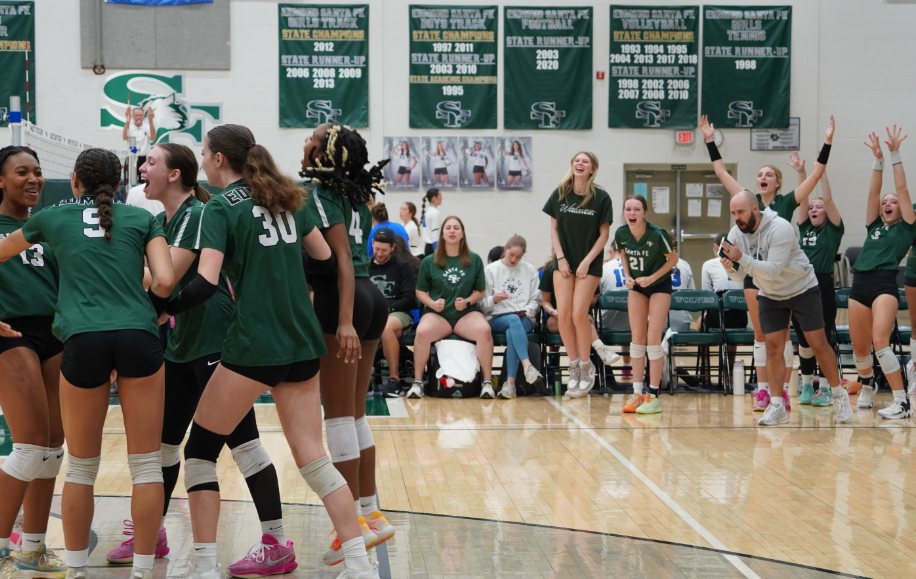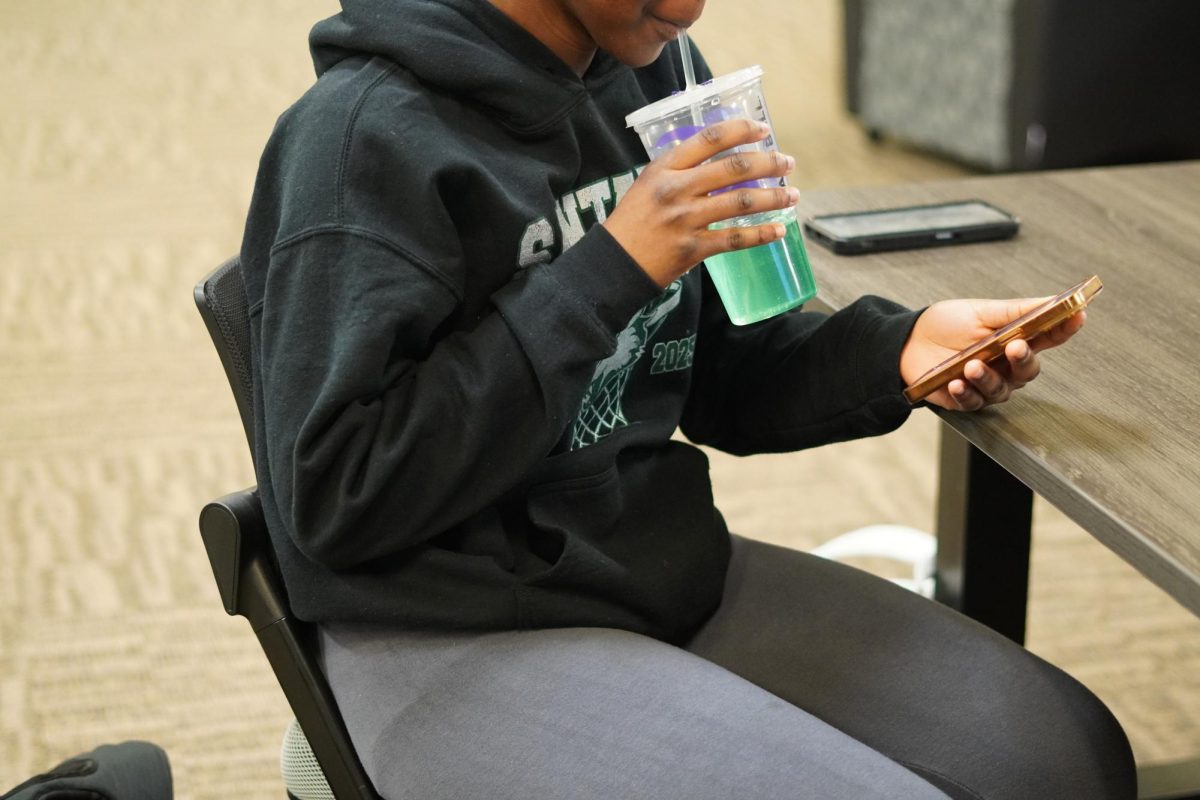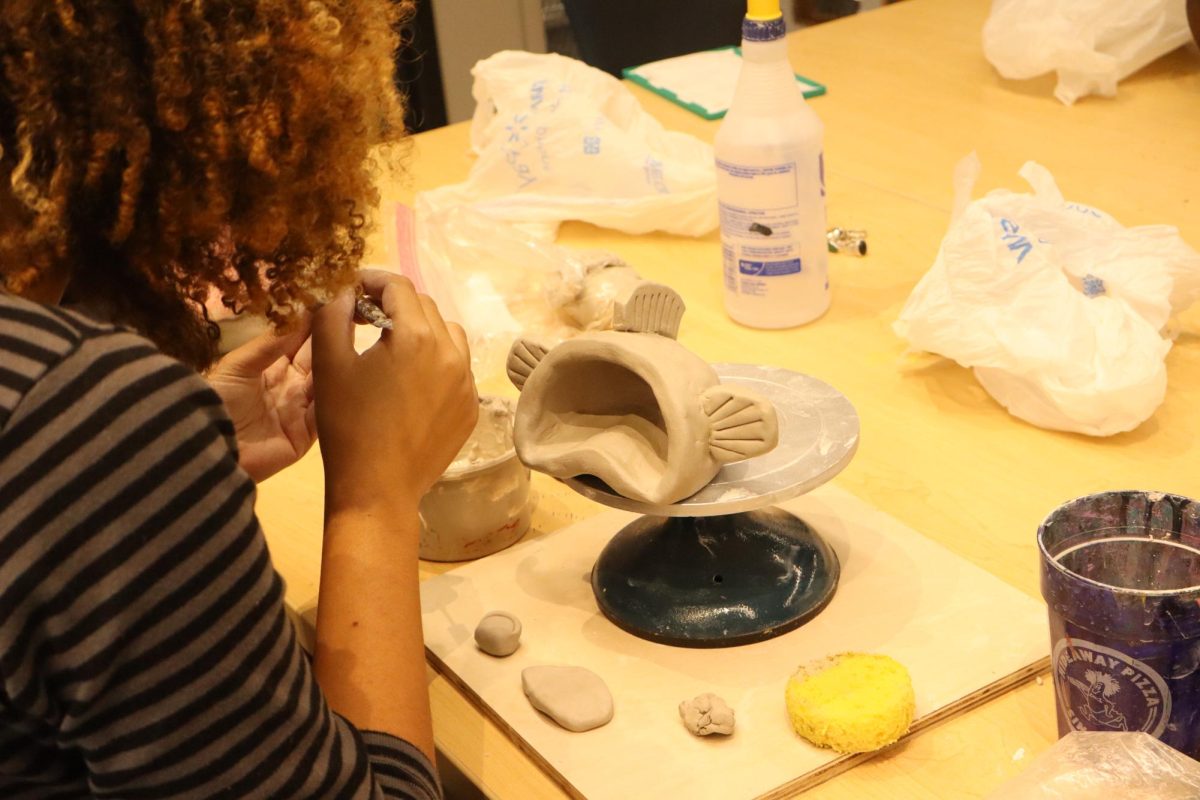
With Edmond Santa Fe’s annual ACT season officially coming to a close, individual scores have begun to roll out into students’ inboxes. While the overall statewide data for this year’s junior class will continue to be unavailable until their high school graduation, we can analyze past findings to see how our students may have performed this year.
Across the state of Oklahoma, all juniors are required to take the ACT to graduate. Therefore, in the graduating class of 2023, all 45,538 members were tested as a junior in 2022.
According to the ACT website, this group’s average composite score was 17.8, ranking #47 in the country and 1.7 points lower than the national mean. Compared to the southern region of the US, the class averaged exactly a one point decrease.
For all sections of the ACT, less than half of Oklahoma’s 2023 graduating class met the standardized benchmarks.
For the Oklahoman graduating class of 2020, their average resulted in a composite score of 18.7- still lower than the national score of 20.6 and southern region’s average of 19.7 at the time. We can assume that the COVID-19 pandemic and resulting school interruptions played a huge role in the overall decrease in scores since then.
On the other hand, three stellar Santa Fe juniors– Timothy Newman, Kevin Su and Maxwell Xie- earned a flawless score of 36 on the ACT this year due to their hard work and diligence.
Surprisingly enough, this wasn’t the first time Maxwell had taken the ACT. After the pandemic, the test went virtual, which aided this fast typer in pushing his writing score from a six to a ten out of twelve. While he believes that more and more institutions will shift to the online world over time, Xie continues to accept the role of standardized testing within our country’s education system.
“Even though the pandemic has caused many colleges to go test-optional, those schools are reverting back to test-requiring because they still believe these tests are an important metric,” Xie said. “Overall, while the pandemic will definitely push a lot of tests to become virtual, I don’t think it will have a lasting impact on the significance of testing for colleges.”
Challenging the exam’s time limit, Xie continued to take practice tests until he grasped the concepts he lacked, utilizing his already acquired reading skills and experience in mathematics competitions until he finally became perfect.
Though Maxwell experienced tremendous success on the ACT, his accomplishments largely stemmed from his own abilities and time put into preparation outside official school hours. Within Oklahoma, he believes there is a systemic lack of backing within our public school system, causing our state to rank so poorly on this test.
“Personally, I think the education program is underfunded and very underdeveloped compared to other states, which, in addition to students having fewer opportunities, also contributes to talented students moving away to find better programs,” Xie said. “This in turn causes schools to cut back on more advanced programs since there is no one left that needs them. The whole thing is like a cycle.”
Connecticut: The #1 state in the nation for ACT testing. While only 8% of 2023 high school graduates were tested, their composite score resulted in a whopping 26.4, with a minimum of three-quarters of the class meeting all benchmarks.
When examined next to the northeastern region of our country, Connecticut averaged a 1.4 point increase. In contrast to Oklahoma, the state has since climbed 0.5 overall points since the COVID-19 pandemic’s graduating class of 2020.
Abbey Esposito-a junior from New Haven, Connecticut- earned a 780 on her PSAT and 980 on the SAT. Like Santa Fe, her school requires a standardized testing score to graduate- in her case, it’s the SAT, which is the only exam Cooperative Arts & Humanities Magnet High School offers.
“Personally, I’ve never heard of the ACT or what it is until talking to someone from Oklahoma,” Esposito said.
Living by the prestigious Yale University has both its advantages and its challenges. While COVID-19 slowed down both her school’s and state’s testing protocols, the Ivy League sector of New England continued to thrive, placing an emphasis on standardized superiority and requirements.
“Though the non-rich kids make up a majority of Connecticut, and we are more publicly educated than privately educated in schools, that doesn’t mean anything when it comes down to averages,” Esposito said.
As a result, the often privately-tutored students win out, volunteering to take the lesser-known ACT and acing it with greater privileges. This is unlike Oklahoma in the sense of many participants here being solely prepared within our limited school hours.
“If Connecticut is better than Oklahoma, it’s because of the private schools and the rich kids who pay the teachers of New Haven to tutor them paying upwards of $100 an hour,” Esposito said.
While we hope our talented Santa Fe juniors can break this local cycle, the facts speak for themselves. Through lasting effects from the pandemic and lacking support within the ACT preparation process, Oklahoma may need to go through some big changes in order to improve.





































